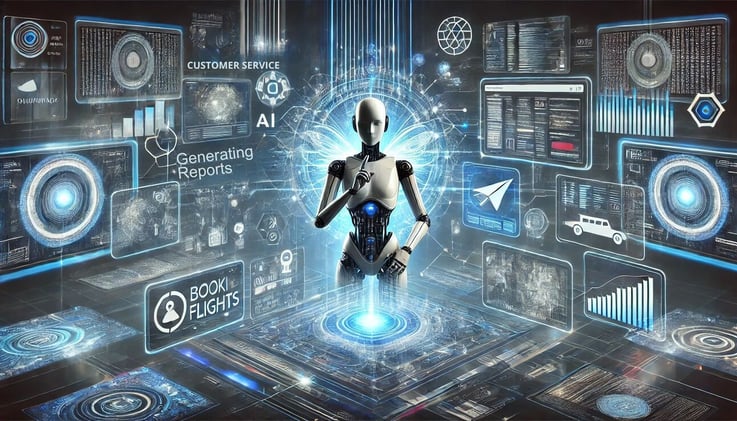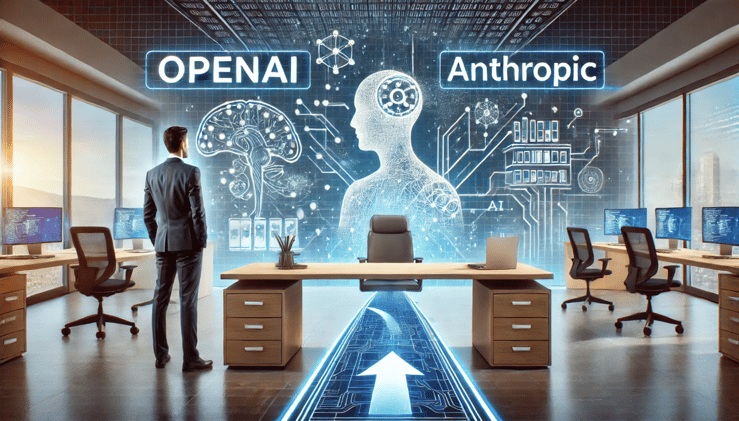Introduction
Artificial intelligence (AI) agents have been hailed as the next big advancement in AI technology. However, there’s a catch: no one can quite agree on what they actually are. In this article, we’ll explore the concept of AI agents, their capabilities, and their potential impact on various industries.
What Are AI Agents?
AI agents are intelligent software systems that can perceive their environment, make decisions, and take actions to complete tasks—often with little to no human involvement. They’re essentially supercharged virtual assistants that don’t just answer questions but actively take action across different systems to get things done.
Examples of AI Agents in Action
- Perplexity AI recently released a shopping agent that helps users find holiday gifts.
- Google’s Project Mariner can book flights, find recipes, and shop for household items.
A Shared Concept, Different Visions
While there’s no single definition of an AI agent, perspectives vary depending on the tool’s purpose. Some see AI agents as task-focused helpers, while others envision them as digital co-workers or customer experience tools.
Task-Based Assistants
Google sees AI agents as task-focused helpers. For example, they might assist developers with coding, help IT professionals troubleshoot logs, or guide marketers in creating a color scheme.
Digital Co-Workers
Asana envisions AI agents as ‘extra employees’—tools that autonomously complete assigned tasks, much like a highly efficient colleague.
Customer Experience Tools
Sierra, a startup founded by Bret Taylor and Clay Bavor, focuses on agents that enhance customer service by solving more complex problems than traditional chatbots.
A Common Definition
Rudina Seseri, managing partner at Glasswing Ventures, sums up the general concept: ‘An agent is an intelligent software system designed to perceive its environment, reason about it, make decisions, and take actions to achieve specific objectives autonomously.’
What Makes AI Agents Different?
At first glance, AI agents may sound similar to tools like ChatGPT or virtual assistants like Siri. However, there’s a key difference:
- Traditional AI tools: React to commands and questions.
- AI agents: Go further by reasoning, taking action, and solving tasks across multiple systems—like booking a trip, troubleshooting software, or building a report.
The Challenges of Building AI Agents
While AI agents hold great promise, experts agree that building them is incredibly difficult. The obstacles include:
Crossing Systems
Many legacy systems lack APIs (tools that let software communicate), making it hard for AI agents to access and work with them.
Reasoning Limitations
Current large language models (LLMs), like GPT-4, aren’t yet capable of complex, multi-step reasoning needed for fully autonomous agents.
Multiple Models
Experts believe the most effective agents will combine multiple specialized models, not a single LLM. Fred Havemeyer, head of U.S. AI and software research at Macquarie US Equity Research, explains: ‘As we move forward in developing these agents, I think you’ll see that they’re built on top of multiple different capabilities.’
The Future of AI Agents
Despite the hurdles, experts agree that AI agents represent a critical step forward in AI development. David Cushman of HFS Research explains the goal: ‘It’s where AI operates independently and effectively at scale. Humans set the guidelines, the guardrails, and apply multiple technologies to take the human out of the loop.’
A Vision for Autonomous Agents
Fred Havemeyer describes this future: ‘As I’m thinking about the future of agents, I want to see and I’m hoping to see agents that are truly autonomous and able to take abstract goals and then reason out all the individual steps in between completely independently.’
Key Takeaway
AI agents are emerging as a transformative technology, with the potential to automate tasks and streamline workflows like never before. While challenges remain—especially around reasoning, infrastructure, and multi-system access—the promise is clear: a future where AI agents act autonomously to accomplish tasks on our behalf.
Editor’s Note
This article was created by Alicia Shapiro, CMO of AiNews.com, with writing, image, and idea-generation support from ChatGPT, an AI assistant. However, the final perspective and editorial choices are solely Alicia Shapiro’s. Special thanks to ChatGPT for assistance with research and editorial support in crafting this article.




